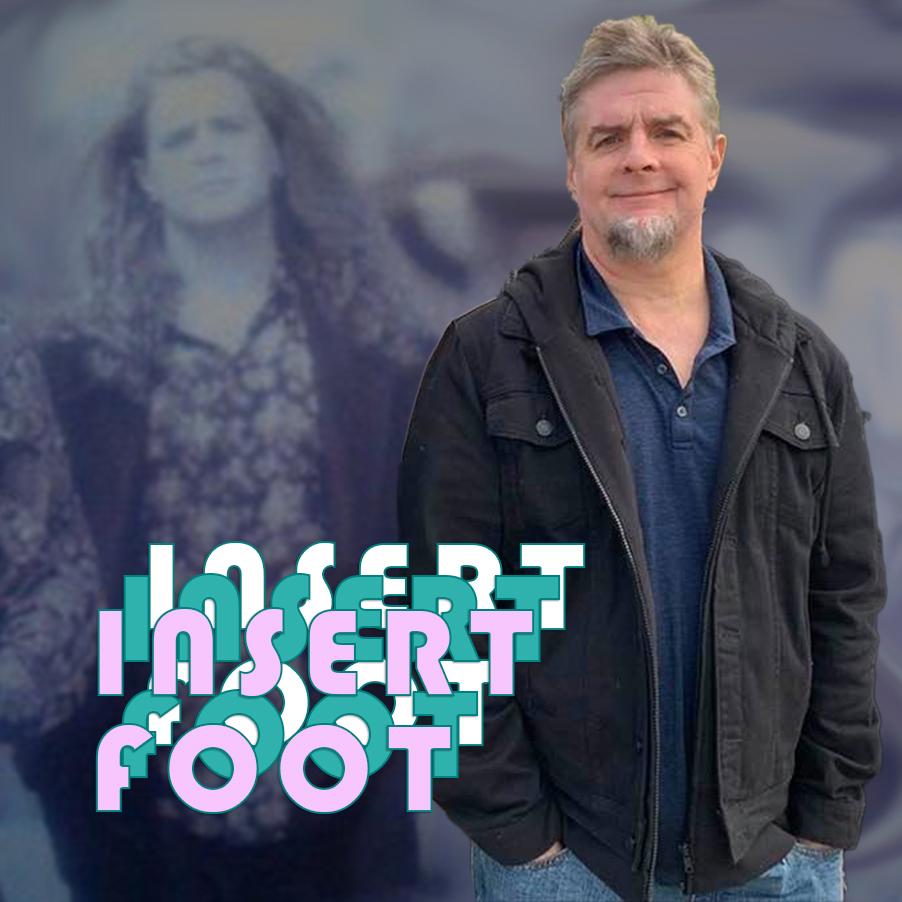Insert Foot: Are we sure artificial Intelligence is threatening music?

Rendering: Adam Pardee/STAFF.
I talked last week with someone about artificial intelligence in the context of journalism. They brought it up; I have other things to worry about. Like whether I’ll have money to be alive in 10 years and that burning smell coming from my daughter’s room.
Why yes, I suppose AI could replace a human reporter. Which I should find frightening but actually may show I have more confidence in humanity than once believed.
The example I used is the basic entry-level reporter job covering a local city council.
If you can’t do it adequately – without injecting obvious bias, having a basic comprehension of how a city works and being willing to listen to some people overestimating their importance until 1 a.m. on a Wednesday morning – take the journalism degree and go make real human money in PR.
Which isn’t a bad thing at all – I kind of tried it for a while and was pretty much a miserable failure. But the money was nice.
To do the job right, that cub reporter must enjoy that boring meeting on some weird level. It sounds awful, and people laugh, but it takes some actual caring to do it correctly.
But, yes … theoretically, a news organization could use AI to record and identify everyone speaking at a meeting. It could analyze the agenda and use a giant database for context and history of the issues and write a very straightforward story about what happens at a city council meeting.
But doing so would be incredibly stupid. Only robot editors would do such a thing.
Those meetings test someone’s ability to report something back relatively objectively and accurately. We’ve never needed human objectivity – or attempted objectivity – more than now. We need human filters to try to understand things.
AI doesn’t shake hands, make eye contact, keep showing its human face or feel invested in a community. It doesn’t get to know sources. It can’t rely on essential humanness to decide what’s an emotional story, or a comeback story, or a story that humans really need to hear.
It doesn’t take offense at human abuses of power. It doesn’t become emotionally moved at inspiring stories. You can program for accuracy, but not the feeling that truth and democracy matters. It’s silly to think it could do the job properly.
That doesn’t mean it won’t try. In the long run, it might even be a good thing. It could make journalists step up their game.
That could also be the case for artists – an even stranger hypothetical of the hysterical “Skynet-is-coming” crowd.
To connect with art, people want to connect with the feeling of the artist when creating. AI can make art, but not the emotions going into it.
A robotic approach has already infiltrated the music business. The songwriters and record execs with the biggest houses know exactly what chord changes combined with so many beats per minute, sung by someone who has the optimum look will appeal best to the people most scientifically proven to spend money on that record.
AI could probably figure out the formula even better. AI can paint a beautiful picture or soundscape. But beautiful to humans. It’s just using human data to map an idea of what we find pleasing and, essentially, copying it. It’s certainly saving some “musicians” a lot of time.
But could AI replicate the magic of John Lennon and Paul McCartney locking into each other and, strangely falling into a kind of competitive love trance while making music that changed the world?
It could now, because the human template is there. But it would still lack that magic that we can’t describe that changed the music world.
Could AI replicate that energy a sweaty and exhausted Bruce Springsteen bounces back and forth with a crowd for three hours a night? Could it make 50,000 people in a stadium think of an artist the same way it does a best friend or family member?
Could AI be pissed off enough to invent punk rock? If so, do we really want angry robots?
Could AI come up with the deep swirling mass of mystery and contradiction and joy that was Prince? Could all the AI on the planet invent Edward Van Halen?
AI relies on physics, I suppose, and laws that – while seemingly black and white, keep expanding as we learn more.
But ask AI to explain love. Humans can’t even adequately do that.
Ask AI to explain that feeling that floods back 40 years later when a human remembers having a “song” with someone believing they’d be together “forever” (a word which, by its very definition, shouldn’t exist, but humans made up to mark an important feeling).
Could AI make that song? Probably – because people already did. But ask AI to write fresh material about why it still hurts 40 years later.
Billy Corgan just discussed how Radiohead changed music in the ’90s with OK Computer and the coming of “laptop rock,” in a recent interview with Apple Music 1. Laptops are just another instrument, and OK Computer is some of the most unpredictable and, ironically, emotional music of its time.
I thought the title might’ve referred to the music. But now it sounds like a challenge.
Follow music critic Tony Hicks at Twitter.com/TonyBaloney1967.
